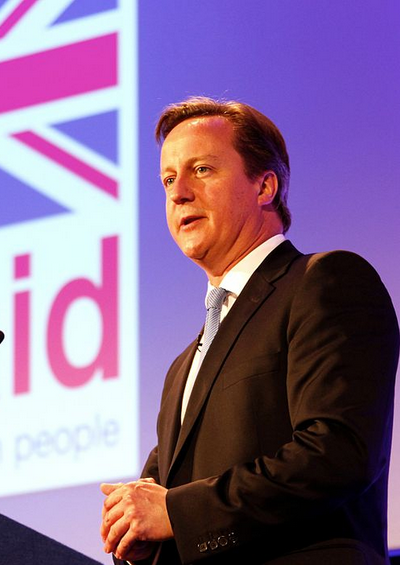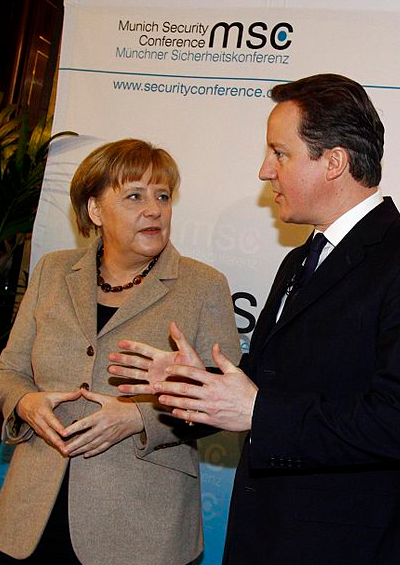Cameron, the Realist: A Message to America
Why the British Prime Minister’s more modest foreign policy goals for the UK should inspire the U.S.
June 4, 2015

David Cameron, Britain’s Prime Minister, is increasingly thought of as a wet noodle in Washington. That charge stings, especially when it is raised not just by Republican hawks, but also by the Obama Administration.
In rare bipartisan agreement, Mr. Cameron is seen in the U.S. capital as positioning his country to duck when the going gets tough.
In addition, on strategic business matters Cameron is seen by Washington as coddling up to the Chinese. He not only coldshoulders the American ally by declining to meet with the Dalai Lama, but also by choosing to join the Asian Infrastructure Investment Bank. That move occurred against explicit U.S. wishes to stay out of the Chinese-inspired (and likely Chinese-dominated) body.
A senior U.S. administration official even went as far as criticizing the British government for its “constant accommodation of China, which is not the best way to engage a rising power.” Ouch.
Reality check
With all that in mind, it is high time for a reality check. Yes, some of the charges Washington levels against David Cameron and his government seem on target. By 2020, the British Army is supposed to have a headcount of no more than 82,000 – fewer people than fit into Wembley Stadium for a soccer match. Some say the troop level could go down into the 50,000 range.
What is interesting about this national preference to de-emphasize the military is that the British public expresses a similar position about the use of public budgets as do many other European nations. In that regard, the UK is actually becoming more (continental) European in mindset, despite all the recent talk of Britain trying to sever its ties to the European mainland.
But here’s the rub: Irrespective of whether one likes Cameron’s politics or not (he is a conservative), he is a realist. And a pragmatist.
He understands full well that his country, the UK, has tended to punch way over its weight class for some decades. And he knows there are urgent needs to be met on the home front, such as affordable housing and increasing Britain’s productivity levels.
Leaving Blair behind
Come to think of it, Cameron is actually a welcome change from his pre-predecessor, Tony Blair. The latter was supposedly a “progressive” politician, but really stood out mostly because of his constant inclination to give in to acts of bombast.
While Blair was grandstanding on the international stage, mainly specializing in his act of any U.S. president’s “sidekick” (or “poodle,” as others put it far less charitably), he mismanaged his country’s economy.
Despite long boom years from letting the real estate and banking sectors run at full speed with little effective supervision, the British economy under Labour’s tutelage predictably ended up mostly benefiting the rich.
Meanwhile, workers – the Labour Party’s traditional constituency – at best treaded water. Little wonder quite a few of them have turned to support the UKIP Party, with its Little Englander spirit.
Division of foreign policy labor
Yes, Cameron has “allowed” the Germans to handle some of the core European crises. But even venerable establishment voices, such as Robin Niblett, the head of Britain’s Chatham House think tank, find no fault in such a division of labor. The Germans are simply closer to these crisis situations – in Ukraine and the Eurozone, the latter of which the UK is not a member.
But give credit where credit is due. Cameron knows that the British people’s main concerns are at home – while the UK leadership, under various political stripes, has had too much of a penchant to engage abroad.
That is also a lesson that Cameron has learned personally. While he basked in the “glory” of liberating Tripoli via personal visits in September 2011 and again in January 2013, that supposed success has collapsed into a pile of political and economic rubble.
Conservative that he is, the real signal sent by Cameron’s stronger focus on home affairs and scaling back of the UK military is toward the machine that now criticizes the British Prime Minister so much: Washington’s national security establishment. It should listen to Cameron.
The new reality
His core analysis – that countries need to be more selective about when to engage and where to make a real difference – very much applies to the United States as well.
With one notable difference: That new reality has not yet entered most of the minds on Capitol Hill. And Obama himself is shackled from talking about this – for fear of being called unpatriotic, not loving America or unilaterally hollowing out its exceptionalism.
Cameron’s realization that the foreign policy establishment’s traditional appetite for global expansiveness is much larger than the people’s stomach certainly applies to the American people just as much – if they were ever faced with the real choices.
The crucial difference for now is that the U.S. Congress is one gargantuan grandstanding machine. On foreign policy matters, just about every member gets to sound off, without any concern for the consequences or the practicality or affordability of their suggestions.
Witness the Senator Tom Cotton/Iran negotiations letter affair – or the never-ending announcements by John McCain to expand the defense budget and take military action in just about any corner of the world.
Takeaways
Cameron understands that his country, the UK, has tended to punch way over its weight class for some decades.
Whether one likes Cameron’s politics or not, he is a realist. And a pragmatist.
Cameron is sending a strong signal to Washington’s national security establishment.
Cameron knows that the British people’s main concerns are at home and he acts on that voter preference.
The US foreign policy establishment’s appetite for global expansiveness is much larger than the people’s stomach.
On foreign policy matters, the US Congress is one gargantuan grandstanding machine.

